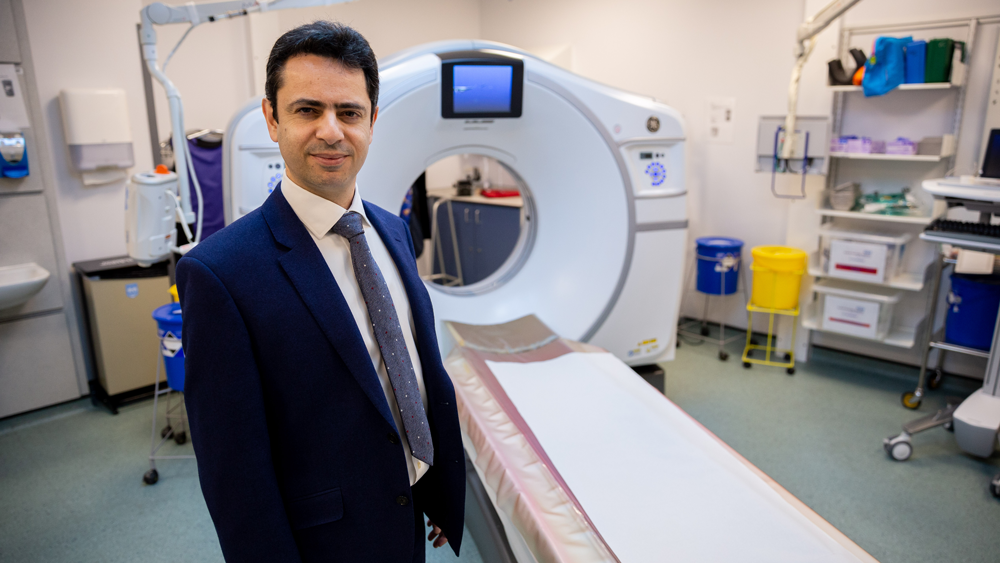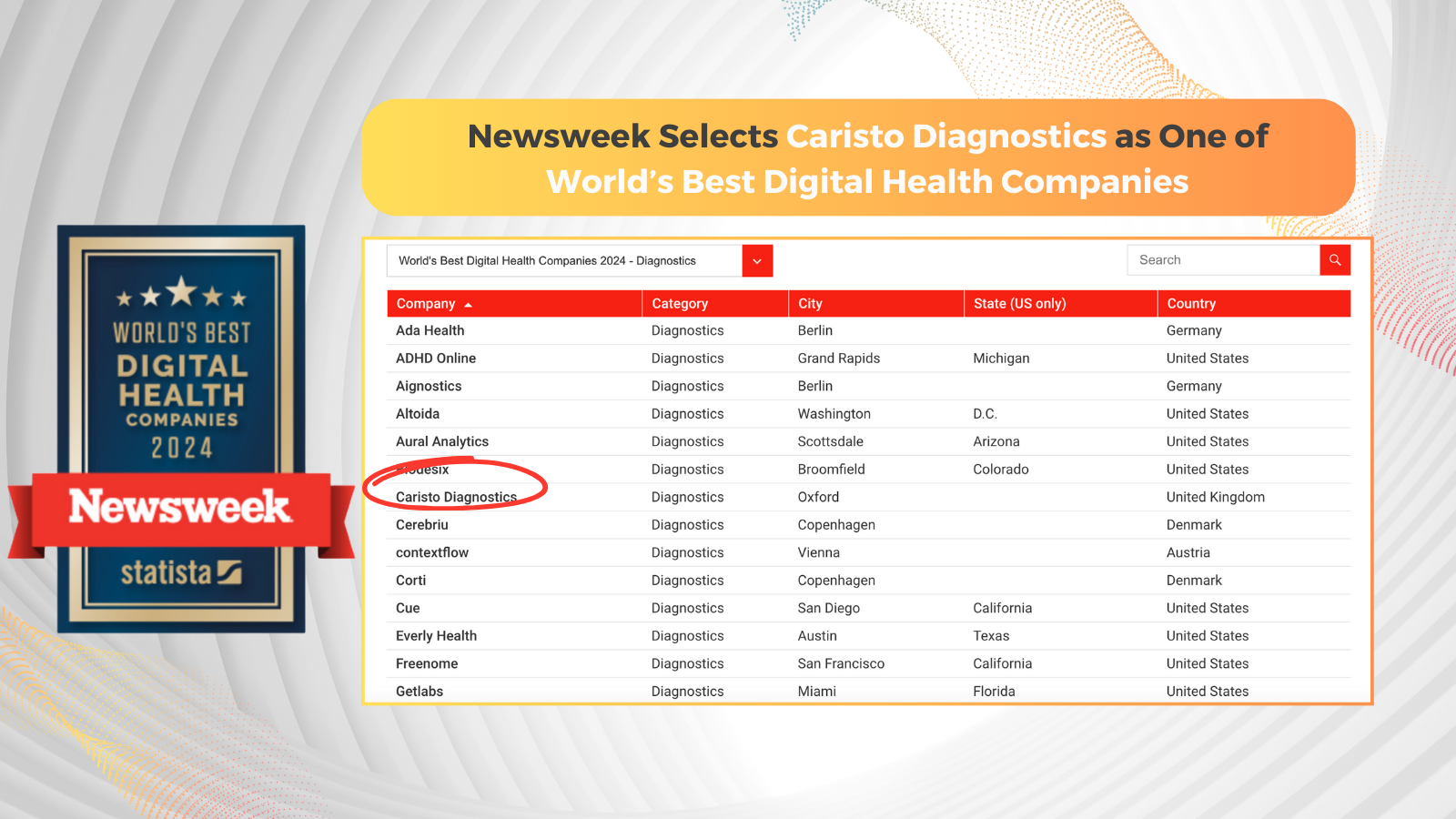7 Technologies That Could Change Heart Healthcare Forevermore

The advent of artificial intelligence (AI) and machine learning is making diagnosing and preventing deadly heart conditions much easier for medics, and it’s all thanks to the tireless and innovative work of funders such as the British Heart Foundation (BHF). Welcome to a world where doctors diagnose heart disease from smartphone selfies, scans predict heart attacks years before they happen and algorithms care (yes, really).
Ten years ago, the US state of Nevada granted Google a licence for its self-driving cars, triggering a torrent of thought pieces proclaiming the age of AI. As the tech evangelists argued, within a decade or so, we could be whizzing around in driverless vehicles, have lower energy bills thanks to smart electricity grids and our mind-numbing administrative tasks would be undertaken by an army of robot personal assistants. Since then, these utopian fantasies have hit something of an impasse, having trouble finding their way through a maze of regulatory, ethical and legal barriers. They’ve become the tech equivalent of Antoni Gaudí’s Sagrada Familia cathedral: Their visionary potential might be within our sights, but it could take a lifetime or more to complete.
In the world of healthcare, it’s a different matter. It’s here where some of the most rapid advances in AI are currently taking place—and where the marvels of machine learning are arguably set to enhance people’s lives the most.
Today, AI can diagnose lung conditions by the sound of a cough, detect eye disorders through smartphone photos patients have taken of their retinas, determine when elderly retirees have taken a tumble in their retirement homes or even catch oesophageal cancer early. Former National Health Service (NHS) England Chief Executive Sir Simon Stevens recently declared that “when the latest chapter in the history of medicine comes to be written, AI in healthcare will doubtless rank alongside earlier advances such as the stethoscope, the X-ray and the blood test.”
It’s big business too: The market for AI platforms in healthcare is forecasted to reach $4.3 billion by 2024, according to GlobalData.
By harnessing machine learning—which essentially trains machines on vast quantities of data—AI can cross-reference millions of records within seconds, diagnosing serious illnesses that may have been missed by medics. As these diagnoses become quicker and more accurate, doctors will spend less time poring over X-rays or racking their brains for similar cases to instead focus more on clinical decision-making and patient care. It’ll also ease the strain on medical resources, edging us nearer to the dream of affordable healthcare for all.
Some of the most exciting developments in the AI healthcare revolution are currently taking place in heart treatment, thanks to funders such as the BHF and the ground-breaking work of its Data Science Centre, which was founded in 2020 to harness the enormous potential of data science in the era of digital medicine for organisations such as the NHS. In addition to that project, here are just a few of the exciting AI innovations that the BHF and other organisations have helped to fund.
1. The AI that gives tip-offs about heart attacks years before they strike (British Heart Foundation Funded)
How would you react if you were told there was a strong likelihood you could suffer a heart attack within the next five years? Worried? Angry? Or maybe strangely reassured that you could take measures, such as taking statins or adopting a healthier lifestyle, in order to prevent the medical emergency from happening. Even though it sounds like the type of grim forecast delivered by spooky (and cruel) end-of-pier fortune-tellers, advances in AI mean this news could soon routinely be delivered by medics too.
CaRi-Heart® is a new tool from Oxford University–based Caristo Diagnostics; it is currently used in 15 NHS trusts across the UK, giving medics the opportunity to identify whether somebody is at high risk of having a fatal heart attack up to 10 years before it happens. It’s much less macabre than it seems: receiving such a timestamp could be a huge help to potential heart attack sufferers, of which one is admitted to hospitals every five minutes in the UK.
Today, if a patient reports chest pains, they’ll usually receive a routine CT coronary angiogram. Unfortunately, these scans can only give warnings of possible heart risk in some cases. In fact, statistics show around three-quarters of patients who receive CT scans are given the thumbs up and sent home. Yet, statistically, one in five of these people will have a heart attack within the next 10 years.
By applying machine learning to CT images, CaRi-Heart® can forensically detect inflammation in the fatty tissue surrounding coronary arteries—a much more precise and earlier red-flag predictor of future heart attack and death compared to traditional indicators such as vessel narrowing. Armed with this intel, physicians can predict more heart attacks before they happen, giving patients the option to take medicine or make lifestyle changes that could prevent future heart attacks or untimely death.
Because the BHF is entirely dependent on supporters’ donations, CaRi-Heart®—which was originally validated in a landmark study funded by the BHF—is a dazzling example of just how powerful philanthropy can be. It is vital work, says BHF Professor Charalambos Antoniades, founder of Caristo Diagnostics: “All the research and work we do is about saving lives—seeing our research translated into something that is widely used in the clinic to save lives and improve the quality of life of our patients. That is the vision.”
This technological advancement could also free up funds for other medical care, according to Cheerag Shirodaria, co-founder and CEO of Caristo Diagnostics. “What Covid has taught us is that we need to prevent disease,” he says. “We’ve spent far too much money on patients once they’ve already got an established disease when they’re in hospital. If we spent more on preventing disease … we would save a ton of money in the long run.”
You can read the full article via the Robb Report


